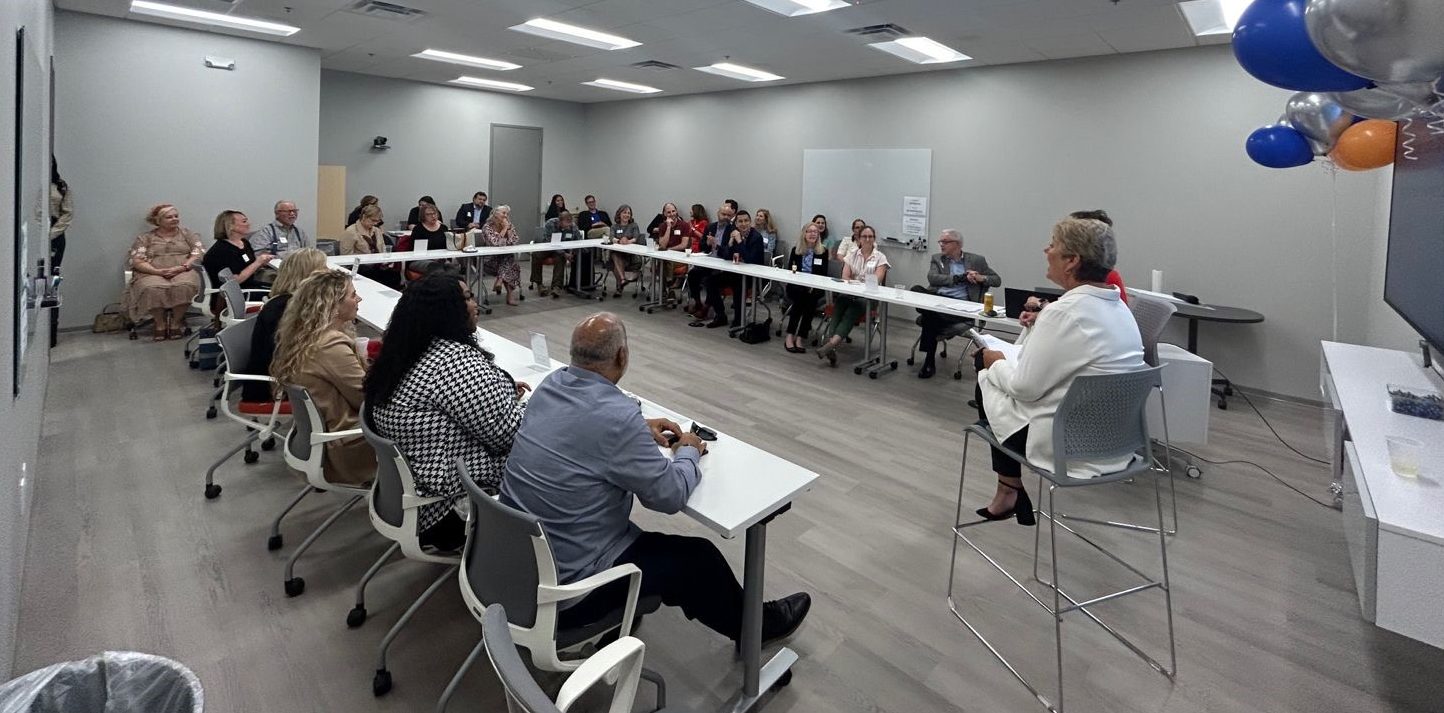
Nonprofit Leadership
Effective leaders have a clear plan for the future. But with limited time and resources, how can you develop the essential skills to make you a great leader? We have the strategies and resources you need to grow your skills as a nonprofit professional. Invest in yourself and set your organization up for success with our Nonprofit Leadership offerings.
- Develop skills to lead your team
- Learn strategies with your nonprofit peers
- Receive expert guidance to enhance your impact
Nonprofit Leadership
Certificates
Do you have the leadership skills you need to help your organization thrive? If you want to invest your professional development, explore our leadership tracks, designed especially for nonprofit leaders in all stages of their careers. We can help you develop the tools and strategies to make an impact in your organization and future leadership roles.
Nonprofit Leadership
Consulting
- Executive Coaching
- Organizational Culture
- Executive Search
Nonprofit Leadership
Resources
General Leadership Resources
- Increasing Nonprofit Executive Team Effectiveness: A nonprofit executive team’s effectiveness is essential for an organization’s success. Yet often these teams underperform for a variety of reasons. The five steps laid out here can help nonprofit executive teams move from underperforming to high-performing in their work to advance their organizations’ missions.
Equity Resources
- Systemic Racism Explained: An engaging 4 minute video that explains what systemic racism is, and how we can solve.
- Racial Equity Tools: Tools, research, tips, curricula and ideas for people who want to increase their own understanding and to help those working toward racial equity at every level – in systems, organizations, communities and the culture at large.
- Race Matters Institute: The Race Matters Institute helps organizations develop policies, programs, practices, and protocols that achieve more equitable outcomes for all children, families, and communities.
- People, Systems, and the Game of Monopoly: Segment of a presentation by Allan G. Johnson where he use the game of Monopoly to explain white privilege and social systems.
- Dog Whistle Politics of Race (Part 1): Ian Haney Lopez describes racism as a strategy to win votes.
- Allegories on Race and Racism: TedX talk that discusses the role of racism on the health and well-being of historically marginalized people.
- The Code Switch Podcast, Episode 1: Can we talk about Whiteness?: This podcast looks into the role/impact of white identity and why we need to talk about it (click play in the upper left corner).
- The Danger of a Single Story: In this TedTalk, Chimamanda Ngozi Adichie warns of misunderstanding if cultures and people are reduced to a single story.
- What is Internalized Racism? : From Chapter 5 of “Flipping the Script: White Privilege and Community Building,” Donna K. Bivens explores the inner and interpersonal results of systemic racism.
- Grieving the White Void: Abe Lateiner looks at white privilege and white guilt.
- Microaggressions in the Classroom
- What is the definition of a Microaggression?
- Racial Equity Here: A national movement started by Living Cities to advance racial equity by dismantling structural racism, city by city, town by town. Good intentions aren’t enough to close outcome gaps, so we are committed to three steps forward, together.
- Diverse Boards Make Better Decisions. So Why Are So Many So White?: A 2017 study by BoardSource found that 84 percent of board members and 90 percent of board chairs were white. And at least a quarter of boards were all white. Why is that and how do we shift?
- Four Signs Your Board is Ready to Put Equity on the Table: How can board members and executives know if their board is ready for deeper work in pursuit of equity? Here are four signs as well as some concrete strategies to get them there.
- A Day in a Life: Imagining a Country without Racial Gaps [INFOGRAPHIC]: In this second iteration of this Living Cities’ infographic, you will follow Sasha and her family through their day while interacting with “historical truths” that highlight why her story isn’t yet our lived normal. As Sasha encounters various systems and institutions, consider each historical truth and how it has led to our current reality and cultural narratives. To interact with the infographic, scroll over and click on the green play buttons.
